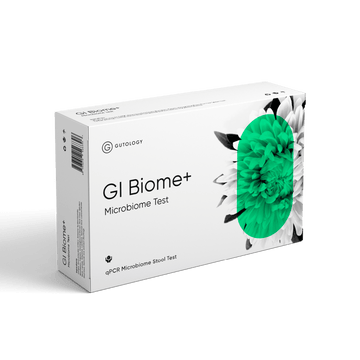A healthy digestive system functions like a smoothly running machine with all the component parts doing their jobs at the right time and in the right amounts. If any part fails to work as designed, this will affect the functioning of the whole system. And, because our digestive system is the source of all the energy and nutrients we need to function, an unhealthy gut will affect the whole of the rest of the body. Let’s look at some common problems with gut health.
Brain
Our thought processes can certainly affect our digestion, through our food choices: what we eat, where we eat and how we eat.
- Being stressed, choosing to eat “on the run” or while distracted (perhaps taking your lunch during a meeting or eating dinner while watching TV) can all cause body resources to shift from supplying digestion to feed the brain instead.1
- Stress in particular has been shown to upset the smooth transition of food along the gut, to reduce secretion of digestive fluids and protective mucus, to increase inflammation, to lead to reduced numbers of “friendly” bacteria and to allow unwanted bacteria to gain a hold.2-5
Mouth
Eating too fast, not chewing properly means food enters the stomach before it has completed the first stage of digestion and the stomach may not be ready for it!
Stress, anxiety or an underlying medical problem can result in poor saliva production which again will prevent food from completing the first stage of digestion. Chewing can itself reduce stress.7
Nerves
The smooth progress of digestion, from chewing, swallowing, churning of stomach contents and moving food along the gut and eventual defaecation depends greatly on good nerve function. Any problems with the nerve system anywhere along the gut are bound to cause problems.8,9
Stomach
Insufficient stomach acid can open the door to a wide range of digestive problems.10
- Low stomach acid may affect how efficiently protein is digested.10
- Acid is also vital for killing any bad bacteria in the food,10 so poor stomach acid may increase the risk of infection or encourage the growth of large amounts of bacteria that are not normally a problem but become so when their numbers increase.11
- Acid is used by the body to help make sure the sphincters that control the flow of food into and out of the stomach are kept tight,10 if acid levels are low, stomach contents may be more likely to enter the oesophagus and cause reflux (heartburn).12
- Acid is needed to release vital nutrients like iron, magnesium and vitamin B12 from food, so low levels of acid can result in nutrient deficiencies.13,15
- Stomach acid is used to create the right conditions for digestive enzymes to work properly, not only in the stomach but also in the small intestine.10 Low stomach acid will be bad news for digestion throughout the whole gut.
- Stomach acid is also used to control which bacteria grow where in the gut, low stomach acid will increase the chances of an imbalance in gut bacteria.15
- Causes of low stomach acid may be stress, aging and taking certain medications, notably antacids.15,17
Pancreas
The pancreas produces important digestive enzymes as well as bicarbonate which adjusts the acidity of the partially digested food coming from the stomach to be just right for the enzymes to work optimally.
Poor production of these secretions will prevent food from being properly digested, resulting in undigested food being fermented by the gut bacteria and encouraging their growth higher up in the digestive tract than they should be living. This can cause several unpleasant symptoms such as bloating, flatulence and bulky, greasy, smelly faeces.18 And food not being properly digested can lead to deficiencies in essential nutrients.19
A diet high in refined carbohydrates, sugars and high alcohol consumption can cause inflammation of the pancreas and may result in reduced secretions. Lack of stomach acid will also fail to stimulate release of enzymes.
Liver and gallbladder
Liver function is important in gut health. The liver produces bile which is stored in the gallbladder ready for use. Lack of bile production or any blockage in the tubes leading to and from the gallbladder (by gallstones) means that fats will not be broken down sufficiently for the digestive enzymes to work on them. This will result in a high fat content in the faeces which may be pale in colour, tend to float and be hard to flush away. Being unable to digest fats properly will cause deficiencies in essential fats, and vitamins A, D, E and K. Bile also plays a role in regulating the gut bacteria.20
Low bile secretion or gallstones can occur due to many reasons, including eating insufficient protein and fat, over consuming alcohol, sugar, or refined carbohydrates, a genetic predisposition to low bile production, hormone problems or, failure to stimulate bile production due to impairment of pancreatic or stomach functions.20,21
Small intestine
After the enzymes from the pancreas have done their work, it is the turn of enzymes produced by the very lining of the small intestine itself (the brush border), where the absorption of foods take place. Damage to the brush border through inflammation, food intolerances, infections or inflammatory foods will stunt the brush border so that it cannot produce these enzymes. The enzyme that digests milk sugar (lactose) is produced here and it is common to become lactose intolerant after a gut infection.22
Inflammation here can also cause the intestinal lining to become “leaky”, allowing undigested food and foreign invaders to potentially leak into the bloodstream where they can trigger an immune reaction which can manifest in problems elsewhere in the body and even autoimmune conditions like rheumatoid arthritis.23,26
If stomach acid is low, this can mean that the small intestine is not as acid as it should be which can encourage growth of bacteria that cannot usually tolerate conditions here.1
Mucus
The lining of the gastrointestinal tract also produces mucus. It prevents food and infections from coming in direct contact with the tissues and from the potentially problematic bacteria, yeast, parasites from taking up residence in the small intestine.27,28Thinning of this mucus layer can, therefore, be a big problem and is thought to play a role in many gut conditions. Stress, an imbalance in gut bacteria, parasites, toxins and the like can result in a thinned layer of mucus.2-5
Large intestine
As the remnants of food pass from the small intestine to the large intestine, it passes through a valve, which should prevent the myriads of bacteria that live in the colon to migrate up into the small intestine, where they are not supposed to be.9,29 If there is low stomach acid, this will also encourage the bacteria to invade.1
The appendix, lying just at the start of the large intestine, provides a reservoir of gut bacteria, but can become infected with unfriendly bacteria causing inflammation and appendicitis. 1,30,31
Gut bacteria imbalance is now known to be a key factor in a huge range of health issues.32,24 Many things can cause an imbalance in gut bacteria including infections, poor digestion causing food components that should be absorbed in the small intestine reaching the large intestine and so supplying food to bacteria that should not be in the large intestine.34,36
The large intestine is where water is absorbed from stools, if the contents of the large intestine are travelling too fast or water is not being properly absorbed, we will experience loose stools, or if things are moving too slowly or excessive water is absorbed, they will become too hard.37,38 An infection might cause the gut to move things along quickly to expel the infecting bacteria,1 but other things can also affect the speed of transit (faster or slower), such as stress and anxiety, nerve problems, how much water or fibre you consume, hormone problems as well as the food you eat.1
Defecation, the rectum and anus
Nerve issues can cause problems with defecation.1
You may have a feeling of incomplete evacuation of stools after you have been to the toilet. This can be due to the complex sequence of nerve signals that orchestrate defecation not working properly, or the information being sent to the brain about whether there are stools ready for evacuation is incorrect.1
Constipation can cause painful haemorrhoids (piles).39
The process of defaecation works best when we squat, but most modern toilets are too high to allow this. Sitting high and not leaning forward puts a kink in the passage making it harder to pass stools.1







